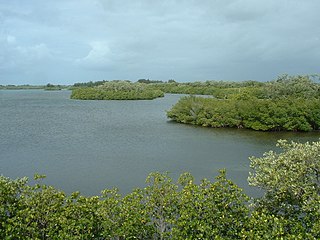Glossary:Estuary
What is an Estuary?
Estuaries are among the most productive ecosystems in the world.
Estuaries and their surrounding wetlands are bodies of water usually found where rivers meet the sea. Estuaries are home to unique plant and animal communities that have adapted to brackish water—a mixture of fresh water draining from the land and salty seawater.
However, there are also several types of entirely freshwater ecosystems that have many similar characteristics to the traditional brackish estuaries. For example, along the Great Lakes, river water with very different chemical and physical characteristics mixes with lake water in coastal wetlands that are affected by tides and storms just like estuaries along the oceanic coasts. These freshwater estuaries also provide many of the ecosystem services and functions that brackish estuaries do, such as serving as natural filters for runoff and providing nursery grounds for many species of birds, fish, and other animals.
Estuaries are among the most productive ecosystems in the world. Many animals rely on estuaries for food, places to breed, and migration stopovers.
Estuaries are delicate ecosystems. Congress created the National Estuarine Research Reserve System to protect more than one million acres of estuarine land and water. These estuarine reserves provide essential habitat for wildlife, offer educational opportunities for students, and serve as living laboratories for scientists.


